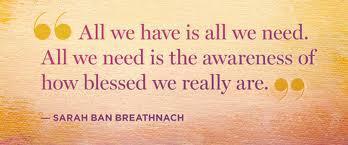'THIS IS THE BEGINNING'
Practicing law for the past seven years, Johnson has spent the past three years working with South Carolina Legal Services, a nonprofit law firm where she primarily represented low-income clients. There, she witnessed a lot of disparities and gaps in resources that affect South Carolinians. In her new position with the city, Johnson hopes to fill as many of those gaps as she can.
"I hope to build relationships with the community, get the word out that I am here and available. In the long term, I want to develop a community advisory committee, so that I can hear the concerns of the community about what is working and what is not working," she says. "Then I'd like to work on a strategic plan with some long-term action items that would include housing, employment, health care, and those sort of things to work on some of the issues in the community."
One year since Charleston City Council narrowly passed a resolution officially apologizing for the city's role in the human slave trade, it's become time to figure out what that apology really means. As Johnson prepares to enter her new role on July 22, she has an optimistic view of what that apology did and did not accomplish.
"The apology started the conversation, and I think it is important to normalize conversations about race," says Johnson. "We have to get to a point where it's not taboo — where we can have very open and honest discussions about race and the issues and impact of what has happened in the past. We are still dealing with the consequences of our past. It's a place to start and it's important just to start to have that conversation."
While Charleston has taken progressive strides in the city's official apology for slavery and the passing of a municipal hate crime law, local efforts to provide greater context to the city's prominent monuments linked to the Confederacy and pro-slavery efforts have floundered.
In Johnson's opinion, it's important to consider what these historical markers are doing for the city and the feelings that surround them.
In terms of approaching such broad and complicated topics like racial reconciliation and diversity from a policy standpoint, Johnson again turns to introspection.
"You have to take a look at your city, expunge the points where you are weak as far as diversity and go from there. That's the first place to start," she says. "Take a look at yourself and see where the gaps are, so that you can focus on those things and you can make sure that your programs and services are benefiting everyone and not just a small group of people."
From her experience working with clients as part of South Carolina Legal Services, Johnson finds that affordable housing is a key issue in local communities. And while debate always surrounds just how involved the city should be in the housing market, Johnson is in favor of local government playing a part to ensure the creation of more affordable housing.
"It's important for the city to be a place that benefits everyone. In the long haul, if everybody isn't seeing some sort of growth or benefit from being here, they won't stay," says Johnson. "It is important for the city to figure out what's going on and what we can do to help — if we can help. It's definitely something that is worth looking into."
As of last week, Johnson has yet to have a formal sit-down with the members of Charleston City Council about her plans as the city's new manager of Diversity, Racial Reconciliation, and Tolerance. Johnson says she doesn't have any specific issues in mind to address immediately. Instead she seems willing to start fresh and dig into all that is sure to come her way.
For Johnson, the very fact that her current position was created as part of Charleston's slavery apology is enough of an indication that something good is possible.
"It shows that they are committed to what they set out to do with the apology," says Johnson of City Council. "It's not just a lot of talk. They are also trying to put some action behind it. This is the beginning.


STARRY EYES11
I dont understand why I should apologize for slavery when I never owned a slave. Seems to me that the people of Charleston should apologize for electing corrupt presidents and sending troops to Iraq with no weapons of mass destruction found. MY FAMILY HISTORICALLY NEVER OWNED A SINGLE SLAVE FOR OVER 2000 YEARS. We came here and helped Charleston become a success. I am not apologizing for traditions that continue to work out of convenience like low wages. We are a free country, and yet we CHOOSE endless war for the convenience of being able to organize better with a hegemony.
CID95
07/11/2019 AT 3:13
ZAC VAPPA
08/21/2020 AT 5:19 PM
The Civil War started in this city, and it is a perfect place for it to end FINALLY! Get over it Confederates, you lost! Like the Nazis in Germany, all symbols honoring the slavery past ought to be outlawed and respectfully removed to a building for the spoils of war.